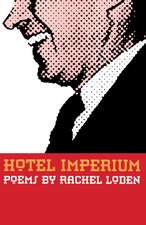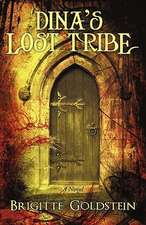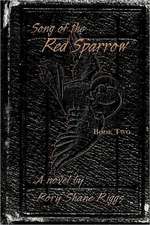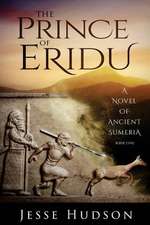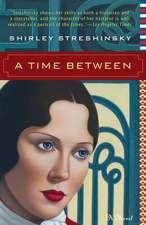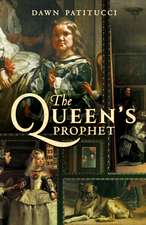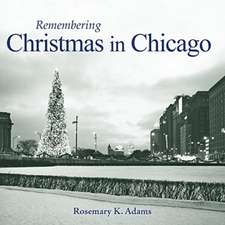The Shores of Paradise
Autor Shirley Streshinskyen Limba Engleză Hardback – 5 aug 2013
True Lindstrom was brought to the orphanage at Waikiki as a young girl. As bold as she is fair, True harbors a tragic childhood secret--as well as a fierce love for Evan Coulter, which she will defy fate and circumstance to fulfill. Twelve years older than True, handsome Evan is an accomplished rider with an abiding love for the land and its people. His political future now seems limitless--until his passion for True jeopardizes his marriage and forces a decision that could alter Hawaiian history. Princess Kaiulani, a delicate child who traces her ancestry to Scottish landowners on her father's side and centuries of Hawaiian royalty on her mother's, is heiress apparent to the Hawaiian throne. The last hope of the Hawaiian monarchy, she is all too aware of the enormous responsibility places on her frail shoulders and understands that she will either grow up to rule the islands--or die a martyr to them.
These dynamic lives are woven into a tale by Martha Moon, the gentle teacher who casts herself in the ancient Hawaiian role of storyteller. It is through her eyes that we witness four lifetimes of adversity, sorrow, joy, and ultimate triumph.
| Toate formatele și edițiile | Preț | Express |
|---|---|---|
| Paperback (1) | 122.66 lei 22-36 zile | |
| Turner – 5 aug 2013 | 122.66 lei 22-36 zile | |
| Hardback (1) | 264.99 lei 22-36 zile | |
| Turner – 5 aug 2013 | 264.99 lei 22-36 zile |
Preț: 264.99 lei
Nou
Puncte Express: 397
Preț estimativ în valută:
50.71€ • 52.62$ • 42.39£
50.71€ • 52.62$ • 42.39£
Carte disponibilă
Livrare economică 24 februarie-10 martie
Preluare comenzi: 021 569.72.76
Specificații
ISBN-13: 9781630264642
ISBN-10: 1630264644
Pagini: 574
Dimensiuni: 140 x 216 x 37 mm
Greutate: 0.88 kg
Editura: Turner
ISBN-10: 1630264644
Pagini: 574
Dimensiuni: 140 x 216 x 37 mm
Greutate: 0.88 kg
Editura: Turner
Notă biografică
Recenzii
"Streshinsky's writing is consistently effortless." —San Francisco Chronicle
“[Streshinsky’s novels] are the best historical fiction being written in America.” —John Jay Osborn, Jr., bestselling author of Paper Chase
From Publishers Weekly
Set in the late 19th and early 20th centuries, Streshinsky's latest novel (after The Gift of the Golden Mountain) intertwines the lives of four colorful characters during a turbulent period of Hawaiian history. Martha Moon, abandoned by her parents, is eventually expelled from a Catholic orphanage in Honolulu and sent to Hale Mana'olana (House of Hope), a school for "the unwanted and unloved" located on a breezy stretch of beach at Waikiki. There Martha develops friendships with two other "young outcasts," the dwarf Liko and True, who has witnessed the murder of her mother. The three become inseparable and, after meeting the frail Hawaiian princess Kaiulani, they add her to their coterie. Conveyed chiefly as Martha's memoirs, the story is gently laced with Hawaiian legends and the characters' correspondence. Streshinsky exhibits a persuasive understanding of Hawaiian class distinctions, culture and folklore. While the shifts in point of view and voice can be distracting, the narrative is unified by the lush detail that exudes the warmth of the islands.
Copyright 1991 Reed Business Information, Inc.
From Kirkus Reviews
Like Streshinsky's others (Gift of the Golden Mountain, 1988, etc.): a hefty, quietly narrated, years-spanning tale of love and loss in a rousing setting. Here, the destinies of two women, orphaned in childhood, are entwined with cross-cultural turmoil and the death throes of an independent Hawaii during the years from 1898 to WW I. True Lindstrom, who witnessed the murder of her mother, and gentle half-Hawaiian, half-white Martha Moon, abandoned as a newborn, will meet in a kindly home for unwanted children and, with the dwarf Liko, form a friendship that will last lifelong. Later the tight trio will welcome another--the elegant child Princess Kaiulani (one of the several real people here; the princess was third in line to the throne of Hawaii, although she, like Martha, was only half-Hawaiian). While Monarchists, Reformers, and the Missionary Boys' (descendants of missionaries bent on control of the islands) contend for the body and soul of Hawaii, the four friends mature and wade into trouble and woe. True loses the love of her life to a stupid marriage, but makes a strange one of her own to protect her unborn child by her lover; Liko secretly cherishes a love that dare not speak its name; and Martha haplessly hopes for love and career. Poor Princess Kaiulani will never occupy a throne. It's only after tragic deaths, a period of bitterness, injustice, even violence over control of a ranch, and mistakes all around, that all find love or a kind of peace. A chatty saga (perhaps a bit long-winded) with convincing appreciations of the history and culture of Hawaii. --Copyright ©1991, Kirkus Associates, LP. All rights reserved.
“[Streshinsky’s novels] are the best historical fiction being written in America.” —John Jay Osborn, Jr., bestselling author of Paper Chase
From Publishers Weekly
Set in the late 19th and early 20th centuries, Streshinsky's latest novel (after The Gift of the Golden Mountain) intertwines the lives of four colorful characters during a turbulent period of Hawaiian history. Martha Moon, abandoned by her parents, is eventually expelled from a Catholic orphanage in Honolulu and sent to Hale Mana'olana (House of Hope), a school for "the unwanted and unloved" located on a breezy stretch of beach at Waikiki. There Martha develops friendships with two other "young outcasts," the dwarf Liko and True, who has witnessed the murder of her mother. The three become inseparable and, after meeting the frail Hawaiian princess Kaiulani, they add her to their coterie. Conveyed chiefly as Martha's memoirs, the story is gently laced with Hawaiian legends and the characters' correspondence. Streshinsky exhibits a persuasive understanding of Hawaiian class distinctions, culture and folklore. While the shifts in point of view and voice can be distracting, the narrative is unified by the lush detail that exudes the warmth of the islands.
Copyright 1991 Reed Business Information, Inc.
From Kirkus Reviews
Like Streshinsky's others (Gift of the Golden Mountain, 1988, etc.): a hefty, quietly narrated, years-spanning tale of love and loss in a rousing setting. Here, the destinies of two women, orphaned in childhood, are entwined with cross-cultural turmoil and the death throes of an independent Hawaii during the years from 1898 to WW I. True Lindstrom, who witnessed the murder of her mother, and gentle half-Hawaiian, half-white Martha Moon, abandoned as a newborn, will meet in a kindly home for unwanted children and, with the dwarf Liko, form a friendship that will last lifelong. Later the tight trio will welcome another--the elegant child Princess Kaiulani (one of the several real people here; the princess was third in line to the throne of Hawaii, although she, like Martha, was only half-Hawaiian). While Monarchists, Reformers, and the Missionary Boys' (descendants of missionaries bent on control of the islands) contend for the body and soul of Hawaii, the four friends mature and wade into trouble and woe. True loses the love of her life to a stupid marriage, but makes a strange one of her own to protect her unborn child by her lover; Liko secretly cherishes a love that dare not speak its name; and Martha haplessly hopes for love and career. Poor Princess Kaiulani will never occupy a throne. It's only after tragic deaths, a period of bitterness, injustice, even violence over control of a ranch, and mistakes all around, that all find love or a kind of peace. A chatty saga (perhaps a bit long-winded) with convincing appreciations of the history and culture of Hawaii. --Copyright ©1991, Kirkus Associates, LP. All rights reserved.
Extras
Sunday, August 7, 1898
True was married yesterday, in a bower by the beach at Ainahau. She said her vows in a strong, clear voice, never once hesitating or faltering; her face glowed with purpose. The trade winds stirred the warm air. Chinese jasmine and tuberoses and plumeria—all the thick, sweet, sad scents of the Islands—filled the big house and the gardens. The ceremony was at sunset, when the breakers were tinged with pink as the waves washed ashore; at dusk, lanterns were lit all about the grassy lawns and the peacocks shrieked and the Royal Hawaiian Band played and there was much singing and celebrating. I went through the motions, as I had promised I would. When the newly weds left, the Queen sang "Aloha Oe." That was when I lost my courage and began to weep. Tears come easily to the Hawaiians, so I hid in their midst and hoped that True wouldn't notice.
This room which True and I shared for many years, which has always seemed small, now seems big and empty and still in the afternoon heat. Even with the shutters open to catch the sea breeze, the air is heavy with the perfume of my fading ginger lei and her absence. A frayed green ribbon lies, dusty and discarded, on her writing table. The quilt is gone from her bed, and the mosquito netting lies folded on the mattress, along with the box this journal came in. I don't know why these leftover bits should make me feel so forlorn, but at this moment I doubt I'll ever be able to take a full, deep breath again.
I wish old Auntie Momi hadn't come to see True married. That is a shameful thing to say, because Auntie has loved me for so long, and she is so old, to walk all those miles. We sat together, looking out to the ocean, and when she started talking her voice was so thin and cracked that it sounded like the whisper of the palm fronds brushing against each other. Then I heard her say what I had been afraid to tell myself: The path True has chosen to take up the mountain is a hard path, filled with brambles, not well trod and with no clear view of the top.
True made me promise not to fret. She said if I was to start feeling seedy, I should ride the grey pony down the road to Ainahau and coax Vicky into going sea bathing with me. And she left me this journal, with a smooth cover of koa wood and Florentine marbled endpapers and thick cream pages, things she knows I set store by. Her note said, "It is time to put Auntie Momi's talk stories on paper, as you always said you would. And while you're about it, storyteller, talk our story. Write it all down, from that first day—do you remember? You stared at me so, I thought you were the most curious, big-eyed little thing I'd ever seen! Tell it outright and honest. I'll expect to read some in the spring, when we come back. Aloha nui loa."
This is just True's way of keeping me busy. Aloha nui loa. I love you very much. True does everything nui loa. I never knew anyone like her, for saying what she means or for plunging headlong into things. When I said that to Vicky, she only laughed and in that proper English accent she's acquired said she'd never known anyone the slightest bit like True, either, and wasn't that a joy?
Old Auntie's talk stories I will write, for they are Hawaii's and deserve to be remembered. That I should talk True's story, our story—well, that will require a certain consideration, especially if it is to be "outright and honest." Sometimes I think True should learn to hold back, but that's like telling the waves not to wash in or the sun not to shine. I swear she only knows how to walk into the wind, that fine white hair of hers flying. My legs are shorter, I can never keep up, and she never waits so I have had to learn to run fast.
Our story. How shall I begin?
Martha Moon is what I am called, but it is not my name. Only Sister Catherine Joseph knows what that is and she won't tell. This much I know: When I was too small to remember, a woman brought me to the Convent of the Holy Names in Honolulu and gave me to Sister Catherine Joseph. Auntie Momi, who was old even then and had raised many children, cared for me. The sisters called me Martha; Auntie added "Moon" because she said the night I was given to her care had been bright with moonlight.
Auntie and I shared the room behind the kitchen, which was set apart from the convent. When I grew old enough, I began to ask Sister Catherine Joseph to tell me the name of the woman who had brought me. She would not; she said she could not.
I spent long hours studying my face: coarse dark hair, black eyes, full lips, a nose that is small and straight. Little Sister Maria Therese liked to say that I had an aristocratic nose and elegant wrists, but even then I knew she meant only to comfort me for my plainness. My body was small and my skin dark, but not so dark as Auntie's or any of the native girls. I was hapa Hawaiian, certainly, and hapa haole, half white, and you would think that two halves would make a whole, but I didn't feel whole because I knew nothing of either half.
I'm certain I have a mother somewhere, I would say to Sister. I must have a father. Perhaps I have sisters, brothers, an ohana—a family. "Say if they exist, only tell me that much," I would plead.
Sister grew ever more silent, until she would scarcely speak to me at all. When I was not receiving instruction in the school or in church, I was left to the keeping of Auntie Momi. She cleaned and swept and cared for me and comforted me and told me the old stories, in a voice so lulling and low that for a time I could escape the fears that came of not knowing where I had come from or who on this green earth belonged to me.
In the end, it was one of Auntie's stories, shamefully embellished for my own purposes, that caused me to be sent away. On the thirteenth anniversary of the day I had arrived at the mission, I arose at five, pulled on my dress and ran across the courtyard, so full of excitement that I did not feel the sharp rocks that cut into my feet. I knew Sister would be at matins; I slipped quietly into the church as she made the sign of the cross and rose, her lips moving silently. I was at the door when she stepped out.
"I have prayed to our Sweet Savior that you will speak to me," I said, piously, as I had practised.
"Martha . . ." she began, wary.
"I cannot go on without some notion of who I am," I said, too loud.
Her face closed, her eyes blinked slowly, like an old sea turtle's, and when she looked at me again it was with reptilian indifference.
"Then you must pray to Almighty God to sustain you," she finished coldly. I suppose that was what set me off.
"I have prayed to God," I answered, the words spitting out of me, aimed straight for the cold heart buried in the black habit, "and He has answered me in my dreams. An angel hovered over my bed last night, an angel with a dog's face, and it told me I am an abomination, an evil thing that was never meant to see the light and that you took me into the convent against the will of God."
The muscles around her mouth began to twitch; I saw but I could not stop myself. My voice began to rise and tremble:
"The angel said I was the child of King Kamehameha the third and his sister, Nahienaena, a Christian. The missionaries taught her that her soul would burn in hell for her sin. The angel said that I died at birth but that my spirit has lived on, wandering in the Pali, and that you sent someone to find me and bring me to you, so that you could punish me for my mother's terrible sin."
Sister's face grew red and her hands began to shake. Holding to the wall, she staggered away, letting out short whoofing sounds, like a cat trying to clear its throat of a hairball. I remember standing there, wondering what awful thing I had done, and how I should be punished.
I had not long to wait.
True was married yesterday, in a bower by the beach at Ainahau. She said her vows in a strong, clear voice, never once hesitating or faltering; her face glowed with purpose. The trade winds stirred the warm air. Chinese jasmine and tuberoses and plumeria—all the thick, sweet, sad scents of the Islands—filled the big house and the gardens. The ceremony was at sunset, when the breakers were tinged with pink as the waves washed ashore; at dusk, lanterns were lit all about the grassy lawns and the peacocks shrieked and the Royal Hawaiian Band played and there was much singing and celebrating. I went through the motions, as I had promised I would. When the newly weds left, the Queen sang "Aloha Oe." That was when I lost my courage and began to weep. Tears come easily to the Hawaiians, so I hid in their midst and hoped that True wouldn't notice.
This room which True and I shared for many years, which has always seemed small, now seems big and empty and still in the afternoon heat. Even with the shutters open to catch the sea breeze, the air is heavy with the perfume of my fading ginger lei and her absence. A frayed green ribbon lies, dusty and discarded, on her writing table. The quilt is gone from her bed, and the mosquito netting lies folded on the mattress, along with the box this journal came in. I don't know why these leftover bits should make me feel so forlorn, but at this moment I doubt I'll ever be able to take a full, deep breath again.
I wish old Auntie Momi hadn't come to see True married. That is a shameful thing to say, because Auntie has loved me for so long, and she is so old, to walk all those miles. We sat together, looking out to the ocean, and when she started talking her voice was so thin and cracked that it sounded like the whisper of the palm fronds brushing against each other. Then I heard her say what I had been afraid to tell myself: The path True has chosen to take up the mountain is a hard path, filled with brambles, not well trod and with no clear view of the top.
True made me promise not to fret. She said if I was to start feeling seedy, I should ride the grey pony down the road to Ainahau and coax Vicky into going sea bathing with me. And she left me this journal, with a smooth cover of koa wood and Florentine marbled endpapers and thick cream pages, things she knows I set store by. Her note said, "It is time to put Auntie Momi's talk stories on paper, as you always said you would. And while you're about it, storyteller, talk our story. Write it all down, from that first day—do you remember? You stared at me so, I thought you were the most curious, big-eyed little thing I'd ever seen! Tell it outright and honest. I'll expect to read some in the spring, when we come back. Aloha nui loa."
This is just True's way of keeping me busy. Aloha nui loa. I love you very much. True does everything nui loa. I never knew anyone like her, for saying what she means or for plunging headlong into things. When I said that to Vicky, she only laughed and in that proper English accent she's acquired said she'd never known anyone the slightest bit like True, either, and wasn't that a joy?
Old Auntie's talk stories I will write, for they are Hawaii's and deserve to be remembered. That I should talk True's story, our story—well, that will require a certain consideration, especially if it is to be "outright and honest." Sometimes I think True should learn to hold back, but that's like telling the waves not to wash in or the sun not to shine. I swear she only knows how to walk into the wind, that fine white hair of hers flying. My legs are shorter, I can never keep up, and she never waits so I have had to learn to run fast.
Our story. How shall I begin?
Martha Moon is what I am called, but it is not my name. Only Sister Catherine Joseph knows what that is and she won't tell. This much I know: When I was too small to remember, a woman brought me to the Convent of the Holy Names in Honolulu and gave me to Sister Catherine Joseph. Auntie Momi, who was old even then and had raised many children, cared for me. The sisters called me Martha; Auntie added "Moon" because she said the night I was given to her care had been bright with moonlight.
Auntie and I shared the room behind the kitchen, which was set apart from the convent. When I grew old enough, I began to ask Sister Catherine Joseph to tell me the name of the woman who had brought me. She would not; she said she could not.
I spent long hours studying my face: coarse dark hair, black eyes, full lips, a nose that is small and straight. Little Sister Maria Therese liked to say that I had an aristocratic nose and elegant wrists, but even then I knew she meant only to comfort me for my plainness. My body was small and my skin dark, but not so dark as Auntie's or any of the native girls. I was hapa Hawaiian, certainly, and hapa haole, half white, and you would think that two halves would make a whole, but I didn't feel whole because I knew nothing of either half.
I'm certain I have a mother somewhere, I would say to Sister. I must have a father. Perhaps I have sisters, brothers, an ohana—a family. "Say if they exist, only tell me that much," I would plead.
Sister grew ever more silent, until she would scarcely speak to me at all. When I was not receiving instruction in the school or in church, I was left to the keeping of Auntie Momi. She cleaned and swept and cared for me and comforted me and told me the old stories, in a voice so lulling and low that for a time I could escape the fears that came of not knowing where I had come from or who on this green earth belonged to me.
In the end, it was one of Auntie's stories, shamefully embellished for my own purposes, that caused me to be sent away. On the thirteenth anniversary of the day I had arrived at the mission, I arose at five, pulled on my dress and ran across the courtyard, so full of excitement that I did not feel the sharp rocks that cut into my feet. I knew Sister would be at matins; I slipped quietly into the church as she made the sign of the cross and rose, her lips moving silently. I was at the door when she stepped out.
"I have prayed to our Sweet Savior that you will speak to me," I said, piously, as I had practised.
"Martha . . ." she began, wary.
"I cannot go on without some notion of who I am," I said, too loud.
Her face closed, her eyes blinked slowly, like an old sea turtle's, and when she looked at me again it was with reptilian indifference.
"Then you must pray to Almighty God to sustain you," she finished coldly. I suppose that was what set me off.
"I have prayed to God," I answered, the words spitting out of me, aimed straight for the cold heart buried in the black habit, "and He has answered me in my dreams. An angel hovered over my bed last night, an angel with a dog's face, and it told me I am an abomination, an evil thing that was never meant to see the light and that you took me into the convent against the will of God."
The muscles around her mouth began to twitch; I saw but I could not stop myself. My voice began to rise and tremble:
"The angel said I was the child of King Kamehameha the third and his sister, Nahienaena, a Christian. The missionaries taught her that her soul would burn in hell for her sin. The angel said that I died at birth but that my spirit has lived on, wandering in the Pali, and that you sent someone to find me and bring me to you, so that you could punish me for my mother's terrible sin."
Sister's face grew red and her hands began to shake. Holding to the wall, she staggered away, letting out short whoofing sounds, like a cat trying to clear its throat of a hairball. I remember standing there, wondering what awful thing I had done, and how I should be punished.
I had not long to wait.
Descriere
Descriere de la o altă ediție sau format:
On the fictional Hawaiian island of Mau'loa in the 19th century, three young girls forge a friendship that will change their lives. But with adulthood come changes--and choices. A magnificent novel of passion and heartache--in the tradition of The Thorn Birds--from the bestselling author of Hers the Kingdom.
On the fictional Hawaiian island of Mau'loa in the 19th century, three young girls forge a friendship that will change their lives. But with adulthood come changes--and choices. A magnificent novel of passion and heartache--in the tradition of The Thorn Birds--from the bestselling author of Hers the Kingdom.


